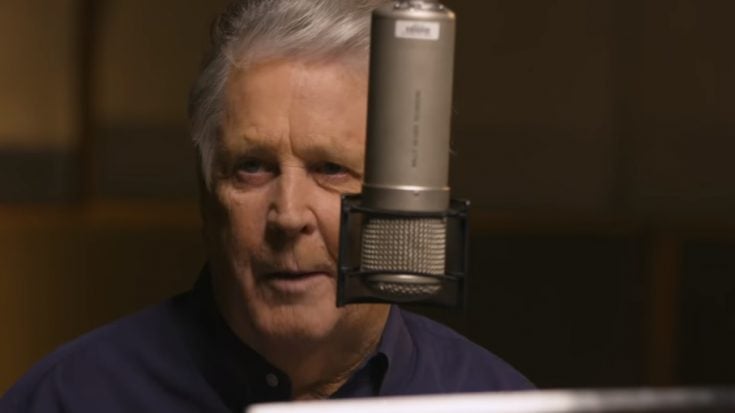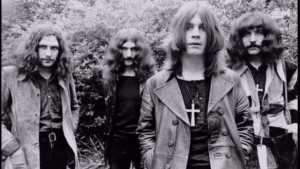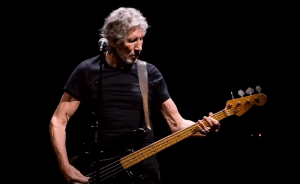How Brian Wilson Was Ultimately Affected By Their Rivalry With The Beatles

Brian Wilson for Fender - Fender / Youtube
Brian Wilson, the creative mastermind behind the Beach Boys, wasn’t new to pressure. In the early 60s, a friendly competition with the Beatles had fueled his genius, leading to iconic albums like Pet Sounds.
But by 1967, the rivalry had morphed into a dangerous obsession. Wilson, determined to outdo the Fab Four, poured his heart and sanity into an ambitious project – Smile. Little did he know, this pursuit of musical supremacy would have devastating consequences.
Over a grueling year, Wilson toiled away on Smile, logging countless studio hours and experimenting with unconventional sounds. However, the pressure, coupled with increasing drug use, began to unravel him. The rest of the Beach Boys, wary of the album’s unconventional direction, weren’t on board either.
Ultimately, Brian Wilson, fearing the music was “too weird”, abandoned Smile. This crushing rejection, coupled with the immense creative effort poured into the project, sent Brian Wilson spiraling into a mental breakdown and years of struggle.
A Transcontinental Conversation
Forget the bitter rivalries of music history. Wilson and the Beatles weren’t locked in a battle for supremacy. Instead, theirs was a creative conversation across the Atlantic.
“People talk about a rivalry,” Wilson himself wrote in his memoir, “but that’s not the right word.” They were fans of each other’s work, constantly pushing boundaries in response to the other’s innovations.
For Wilson, the spark ignited with the Beatles’ 1965 album Rubber Soul, inspiring him to create the masterpiece Pet Sounds. This back-and-forth continued, with Sgt. Pepper’s Lonely Hearts Club Band further fueling Wilson’s ambition for the ultimately shelved Smile.
Though Wilson admitted a touch of jealousy, he ultimately saw it as a beautiful exchange of inspiration. “It wasn’t really a rivalry,” he clarified, “I think it was just mutual inspiration.”
https://twitter.com/andoni_perezz/status/1654953274443722755
A Full-Blown Breakdown That Created Pet Sounds
Brian Wilson’s world came crashing down mid-flight in December 1964. En route to Houston, crippling anxiety and the pressure of touring combined with the stress of a new marriage sent him into a full-blown breakdown.
Witnessing his inconsolable tears, bandmate Al Jardine later recounted their concern: “We were really scared for him… None of us had ever witnessed something like that.”
Freed from the road, Wilson proposed a new chapter for the Beach Boys. “I said the Beach Boys could have a beautiful future if they did their job and I did mine,” he explained in a 1967 interview. Though disgruntled, the band agreed.
This newfound creative freedom, fueled by the ongoing artistic push-and-pull with the Beatles, allowed Wilson to fully immerse himself in the studio. The result? The groundbreaking Pet Sounds, an album that redefined pop music and raised the bar for their friendly rivals across the Atlantic.
Paul McCartney Loved Pet Sounds
The creative exchange wasn’t one-sided. The Beatles were just as eager to catch the next wave from the Beach Boys. Paul McCartney, in a 2010 interview with Ronnie Wood, admitted Wilson’s talent as a composer heavily influenced him during the Beatles’ own exploration of chords and harmonies.
“It was kind of like a rivalry,” McCartney recalled, referencing a similar dynamic with John Lennon where they’d constantly push each other creatively. “[Brian] would hear a song out and then he’d do one, which is nice.”
This friendly competition played a role in the recording of Sgt. Pepper’s Lonely Hearts Band. According to Beatles’ engineer Geoff Emerick, McCartney was deeply inspired by Pet Sounds.
Emerick, in his memoir Here, There and Everywhere, detailed how McCartney frequently played the album during breaks, even requesting a “really clean American sound” for his song “Penny Lane” – a sound heavily influenced by the Beach Boys. The influence extended beyond one track; “Lovely Rita” from the same album also bore the mark of Wilson’s sonic fingerprint.
An Unfinished Symphony That Failed To Connect
Brian Wilson’s ambitions for Smile were nothing short of epic. Envisioned as a “teenage symphony to God” according to Rolling Stone, the album promised a groundbreaking musical experience. He brought in lyricist Van Dyke Parks to collaborate, but the project quickly became mired in problems.
Wilson’s own drug use proved a significant obstacle. “Because I was on drugs, I couldn’t concentrate,” he admitted to Paste magazine in 2004, “and this music requires a lot of concentration.”
Internal conflict within the Beach Boys further complicated things. Mike Love, in particular, clashed with Parks’ direction for the album, leading to Parks’ departure. Ultimately, Wilson himself felt defeated and abandoned the project.
The fallout was devastating. The eventual release, Smiley Smile, was a pale shadow of the original Smile vision. It failed to connect with audiences and critics, pushing Wilson deeper into a spiral of mental illness and substance abuse. Years later, the impact of Smile‘s demise remained. Darian Sahanaja, Wilson’s musical director, told Paste magazine, “It’s pretty well documented how he associates this music with all of his failure. Smile was the moment when he started to check out.”
A Late Blooming Smile
By the late 1990s, Wilson had fought his way back. He conquered addiction, addressed his mental health, found new love, and escaped the manipulative control of his former therapist. With a renewed sense of self, the time was right to revisit Smile.
The early 2000s saw a reunion with Parks, a chance to finally complete what they’d begun nearly four decades earlier. In 2004, Smile came alive on stage for the first time at London’s Royal Festival Hall, followed by a tour and the release of Brian Wilson Presents Smile.
Wilson himself was awestruck: “It brought back a lot of memories,” he told Paste magazine. “It sounded the way I anticipated it would.” They’d even added new material, fleshing out the project they envisioned years before. The performance drew a star-studded audience, including Paul McCartney.
Sadly, Brian Wilson’s public appearances have become less frequent due to dementia and other health concerns. Yet, the legacy of Smile endures. This ambitious project, once abandoned, finally found its voice, a testament to Wilson’s perseverance and the power of a dream deferred.












